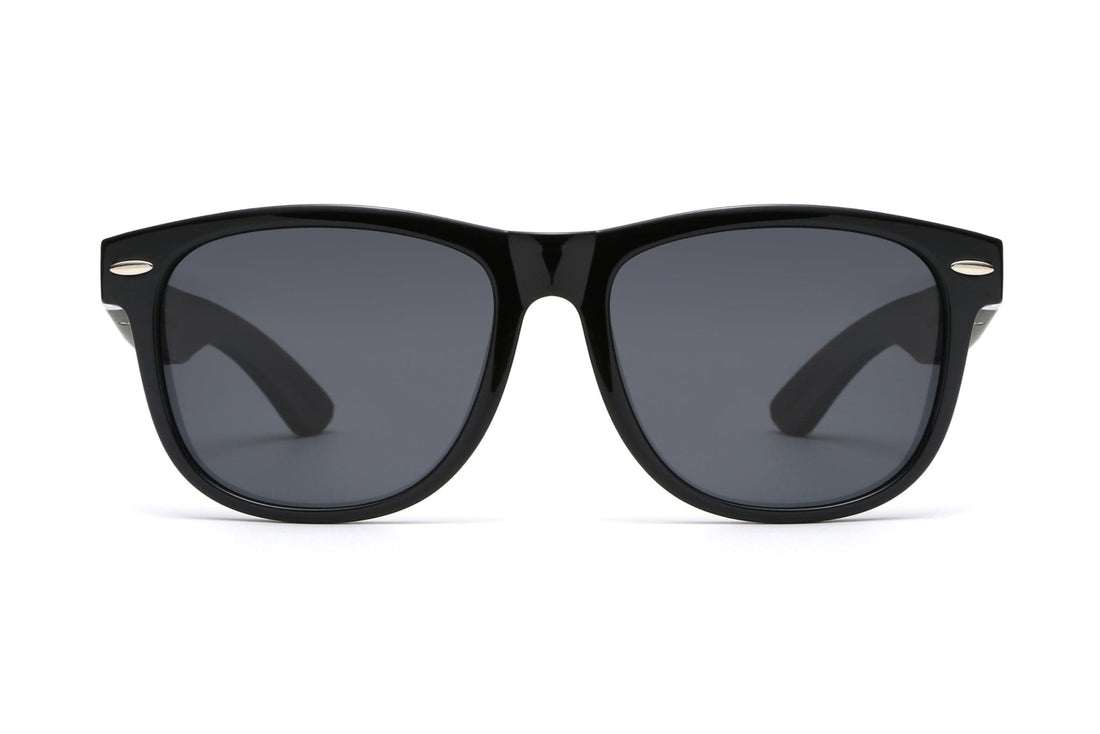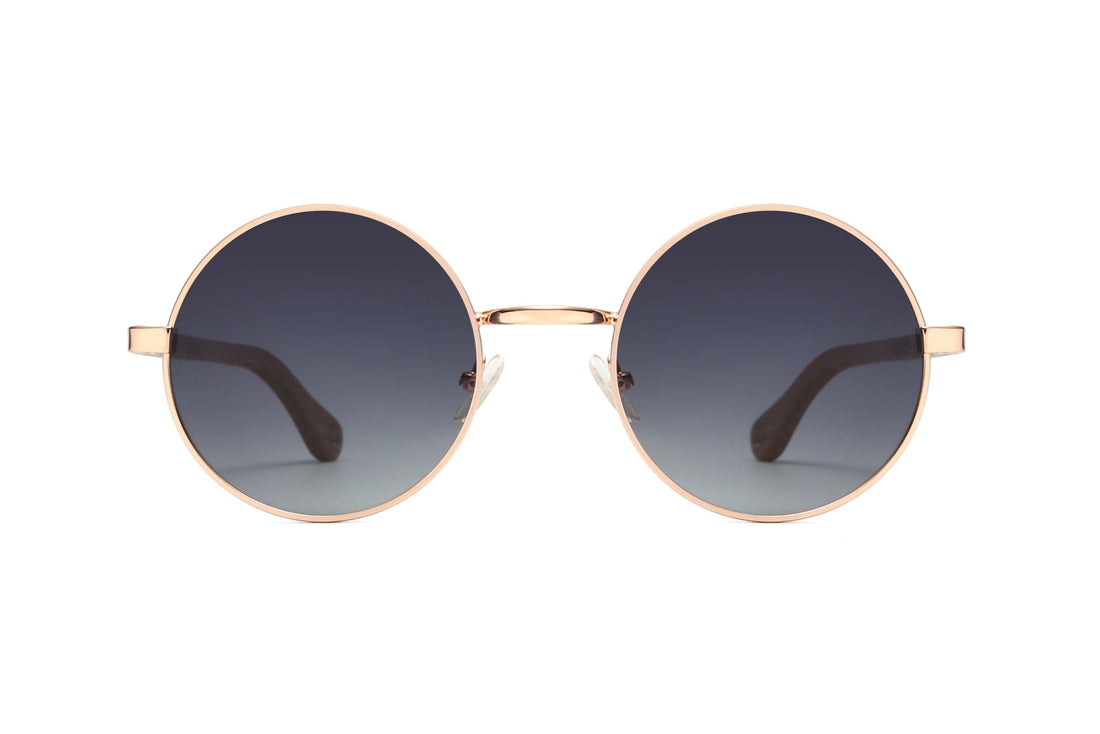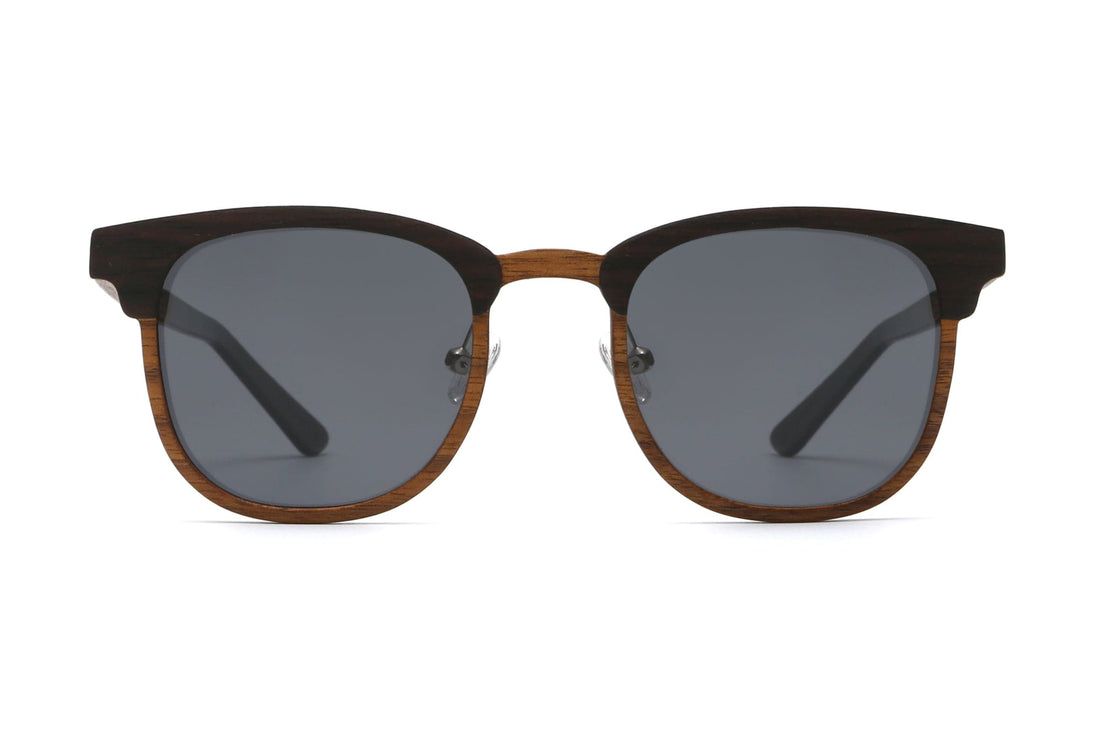
Key Factors to Consider When Buying Sunglasses
Factors to Consider When Buying Sunglasses
7 min read • Updated 28 May 2024
Buying sunglasses isn’t just about style, it’s about protecting your eyes and choosing the perfect fit for your face. In this complete sunglasses buying guide, we’ll help you understand everything from UV protection to lens types so you can make the right choice every time.
Key Features to Look for in Sunglasses
Not all sunglasses offer equal protection. Here’s a quick guide to help you compare features before you buy:
| Factor | What to Look for | Why It Matters |
| UV Protection | Always choose 100% UVA/UVB – UV400 | Protects eyes from sun damage; always choose full UV protection |
| Lens Type | Polarized, Gradient, Mirror, Photochromic | Match lens type to lifestyle and activity (e.g., polarized for glare reduction) |
| Frame Size | Oversized/wraparound | More coverage = better protection from sunlight entering the eyesUV Protection |
| Face Shape | Balance facial features | Choose frames that complement your face shape for style and symmetry |
| Lifestyle | Activity-appropriate lenses | Different lenses and frames suit everyday, driving, beach, fashion, or sports use |
What to Look for When Buying Sunglasses? 10 Factors to Consider
Sunglasses are a must-have eyewear accessory. Not only does it complement your outfit but it grants you protection against the dangers of the sun. Whether you’re buying designer sunglasses or buying prescription sunglasses online, you need to keep in mind a few things that can make or break your decision.
1. Look for UV Protection
The first factor is probably one of the most important. Don’t get overwhelmed by the cost or color — the ability to block UV rays isn’t determined by the price, tint, or darkness of the lenses. Both glass and plastic lenses can absorb UV light, and their protection is enhanced by adding certain chemicals during manufacturing or by applying special UV-blocking coatings.
Always choose 100% UV-blocking sunglasses. Labels that read “UV absorption up to 400nm” mean the same thing, complete protection from both UVA and UVB rays.
When you’re shopping for the best sunglasses for eye protection, always check the tag or sticker to ensure they block 100% of ultraviolet rays. You can also browse our UV400 sunglasses collection, every pair is designed to meet full UV protection standards without compromising on comfort or style.
Global standard for full UV protection
Global standard for full UV protection
Global standard for full UV protection
Australian/ New Zealand standard for full UV protection
2. Ensure They Can Block Enough Light
Other than the uv 400 sunglasses, what would really help you is to make sure that the sunglass you are going to buy are able to block enough light. Any pair you like should turn into light blocking sunglasses. In other words, they should screen out 75 to 90 percent of visible light.
To determine whether the sunglasses are dark enough to block the sunlight, wear them in front of the mirror; if you can visibly see your eyes through the lenses, then those sunglasses are not dark enough.
3. Choose Bigger Sunglasses
Who said size doesn’t matter? the more you get coverage from your sunglasses, the more uv protection against sun damage. So, whenever you’re buying sunglasses online, look for the sizes for sunglasses. Go for the wraparound-glasses or oversized sunglasses. This will help minimize the amount of UV rays entering the eyes leading to safe sunglasses.
While opting for bigger sunglasses, do not forget to prioritize a good fit and comfort, as you will be wearing them for long hours in the sun. To learn more about how to choose the right size of sunglasses for you, you can always refer to our glasses size guide!
4. Check The Quality of The Lenses
The quality of the lenses and the tint are essential. Look for a uniform tint rather than the darker one. You can hold the glasses at arm's length and, at a straight line, look through the lenses at a distance to check the imperfections, like the edge of the door. Then, slowly move the glass across the line. The lens would not be perfect if the straight edge curves, distorts, sways, or moves.
To learn how to find out the quality of your sunglasses, check out our blog: 7 Ways to Find The Quality of Your Sunglasses.
Vision Through Groove Sunglasses / Polarized Lenses
5. Check The Lens Colour
There are many lens colours available for sunglasses such as grey, green, brown, or pink lenses. The lens colour doesn't have any effect on blocking the light of the sun, but it can have an effect on the visual contrast.
Some lens colours can increase contrast, which might be useful for players or athletes who play sports like – golf or baseball.
6. Wraparounds
Wraparound sunglasses’ frames provide extra protection. Sunglasses that wrap around the temples help to prevent the rays from entering from both sides. What a smart invention right? It has been seen before in some studies that adequate UV rays come in the standard frames to decrease the protective advantages of the lenses.
But, you know how fashion always likes to evolve. So, if you're looking to upgrade your wraparound sunglasses, why not accessorize them with glasses chains? They're stylish jewelery that will help your polarized sunglasses stay in one place. They come in different colours and textures like the Cuban link, pearls and herringbone.
7. Cost is Never A Factor
Optometrists and ophthalmologists suggest wearing sunglasses and hats whenever you go out on a sunny day, especially if you live in a country near the equator or on a high elevation. The exciting thing is that you don't need to spend an excessive amount of money on eye protection.
High price doesn't always give you the guaranty of the best protection for your eyes and superior quality. Therefore, it is not always true that expensive sunglasses will give enough protection to your eyes. Sometimes, less expensive sunglasses can be more useful than costlier options if the lenses are 100 uv protection sunglasses.
8. Lifestyle
- Everyday Use: Go for lightweight, comfortable sunglasses with 100% UV protection, perfect for commuting or casual wear.
- Driving: Opt for polarized lenses to reduce glare and improve visibility on the road.
- Beach or Snow: Look for wraparound or oversized sunglasses with UV400 protection to shield against reflective surfaces like water or snow.
- Fashion & Style: Oversized or statement frames add flair while still offering essential UV protection.
- Outdoor Sports: Choose impact-resistant or polycarbonate lenses with wraparound frames to protect your eyes during activities like cycling, running, or hiking.
9. Face Shape
Remember how we talked about the sizes for sunglasses? You can't really buy things blindly. Another important fact to consider before buying sunglasses is your face shape. You have to study it carefully. Do you have a cat eye, an oval or oblong face shape, or a heart shaped face?
Whatever sunglasses you decide to go for, they have to balance your facial features and highlight it too. You can't recklessly go big with sunnies without a delicate study to your face. You can take your eyewear game to new levels once you know what are the glasses for your face shape.
10. Other Special Features
There are many additional features that you can have in your sunglasses. Other than basic UV protection, you can opt for superior filters and coatings on your lenses. These will often provide a better quality of vision, depth perception and superior protection for your eyes. First of all, you have to decide which special features are more suitable for your needs. You can consider these as a variety of "extras" to select when buying sunglasses.
Polarized Filter
When the sunlight bounces off some smooth surfaces like – water or pavement, then polarized sunglasses help cut out the reflected glare. Particularly, this is helpful when boating, driving, or out in the snow. You will need to ensure the UV absorption of the lenses since polarization is not related to UV protection. It's important to educate yourself on the difference between polarized and non-polarized lenses. It could be a game changer when shopping for a new pair of sunglasses.
Mirror Coating
These thin layers of several coatings can help reduce the amount of visible light to enter into the eyes. They are very efficient in high-glare atmospheres, and even more, if combined with a wraparound frame. They can also provide extra protection to the skin surrounding your eyes. It is important to note that UV protection is not guaranteed even if the lenses have a mirror coating. So, make sure to look for the UV labeling on branded sunglasses even if equipped with mirror lenses.
Gradient Tint
Gradient lenses are shaded permanently from top to bottom or from top and bottom towards the middle. Gradient tinted lenses help cut the glare from the sun, all while seeing clearly. These lenses are particularly suitable for driving, but they are not much use in the snow or on the sea beach. Double-gradient lenses might be a feel-good option for sports where lights reflect up off the snow or water, like skiing or sailing.
Photochromic Lenses
Looking for a versatile eyewear solution that adapts to different lighting conditions? Photochromic lenses may be right for you! These innovative lenses automatically darken in bright light situations and become lighter in low light conditions, making them an ideal choice for people who are frequently on the go.
While photochromic lenses can serve as both prescription glasses and UV-absorbent sunglasses, it's important to note that they do take a few minutes to adjust to different light situations. So, if you're looking for instant darkening or lightening, you may want to consider a more traditional sunglass option.
But for those who value convenience and versatility, photochromic lenses are a great choice. Whether you're driving through different lighting conditions or spending time outdoors, these lenses will adjust to your needs and keep your eyes protected. So why not try them out for yourself and see the difference they can make?
Impact-resistant
No lenses are truly shatterproof. All the sunglasses must meet minimum FDA standards considering the impact resistance. Glass lenses are more likely to shatter upon impact compare to plastic lenses. On the other hand, polycarbonate lenses are used in many sports sunglasses, and they are more impact-resistant than regular plastic ones. If you decide to purchase polycarbonate lenses, look for those that are scratch-resistant.
Sunglasses are essential to protect your eyes from the sun, and they're also a staple fashion accessories that can be worn to enhance your looks and your outfits daily. For this reason, we often tend to focus on the appearance aspect of sunglasses rather than the functionality when making the purchase. While we definitely agree that looks and style are just as essential as the protection you're getting when choosing your sunglasses, it is always recommended to consider the factors we've mentioned to ensure you get both aspects in check!
Make sure to verify the sticker on which indicates the percentage of the UV protection on the lenses. Opt for lenses that offer 100 percent UVA and UVB protection and then choose which extra coatings and filters you would like to have, depending on your needs.
Now that you know all the different options available for sunglasses buying your next pair will be a fun sport. You can even accessorize them with beaded bracelets!
Watch Below: 5 Facts About Photochromic Glasses
 Rayhan El-Asmar
Rayhan El-Asmar











